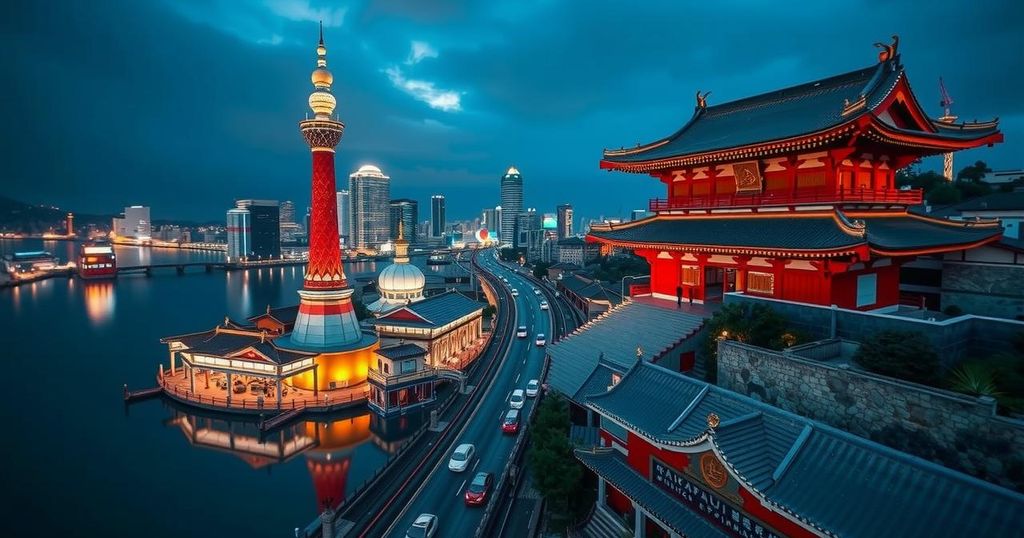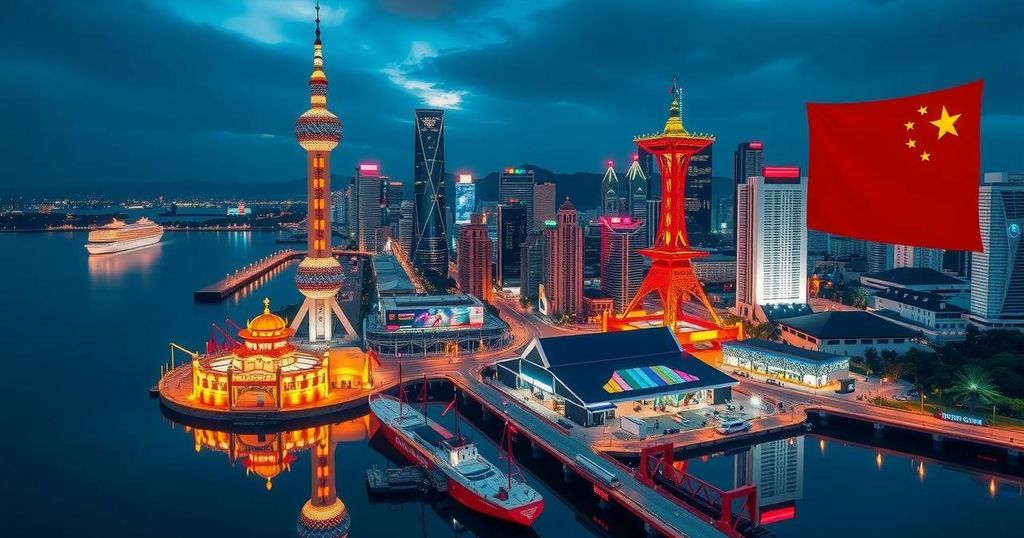Tibetan Protests in India Highlight Human Rights Violations by China
On October 1, 2024, Tibetans in India protested outside the Chinese embassy in New Delhi against human rights violations in Tibet, coinciding with China’s 75th year of Communist rule. Organized by the Tibetan Youth Congress, demonstrators called for an end to cultural genocide and urged international support for their cause. Police intervened, leading to multiple detentions during the protest.
On October 1, 2024, a significant protest took place outside the Chinese embassy in New Delhi, where numerous Tibetans residing in India expressed their discontent regarding the human rights violations in Tibet, their homeland annexed by China in 1951. This protest coincided with China’s commemoration of the 75th year of Communist Party rule. Organized by the Tibetan Youth Congress, participants were determined to shed light on what they term as cultural genocide being perpetrated by the Chinese government against Tibetan heritage. Despite facing resistance from Indian police, who aimed to prevent the protesters from entering the embassy, many activists voiced their grievances and were subsequently detained during the confrontation. Protester Sonam Tenzin articulated the group’s demand, asserting the need for the Chinese Communist regime to cease its repressive actions and calling on the international community to recognize the plight of Tibetans. The Tibetan government-in-exile, headquartered in Dharamshala, a sanctuary for over 85,000 Tibetan refugees led by the Dalai Lama since his flight from Tibet after a failed uprising in 1959, has been vocal about China’s repression of Tibetan culture and violations of fundamental human rights. The Dalai Lama continues to advocate for substantial autonomy for Tibet while denying any separatist intentions.
The Tibetan community has a longstanding history of suffering under Chinese rule, which began with the 1951 annexation of Tibet. This historical context is vital in understanding the protests held by Tibetan exiles in India, as they seek to raise awareness of the continuing suppression of their culture and identity. The Tibetan Youth Congress plays a pivotal role in organizing demonstrations and advocating for Tibetan rights, highlighting issues such as cultural genocide, human rights violations, and the denial of fundamental freedoms in Tibet. The global attention on China’s human rights record has provided a platform for these activists to voice their concerns, spurring actions calling for international intervention and support for Tibetan autonomy.
The protests outside the Chinese embassy in New Delhi reflect the ongoing struggle of Tibetans to bring global attention to their dire human rights situation under Chinese governance. The Tibetan community in India, backed by both the Tibetan Youth Congress and the Dalai Lama, continues to advocate for the preservation of Tibetan culture and identity, emphasizing their requests for respect and autonomy in the face of ongoing repression. These demonstrations serve not only as a cry for assistance from the international community but as a powerful reminder of the resilience and determination of the Tibetan people in their quest for justice.
Original Source: apnews.com








Post Comment